Ginny and Georgia shines light on this rarely explored race issue
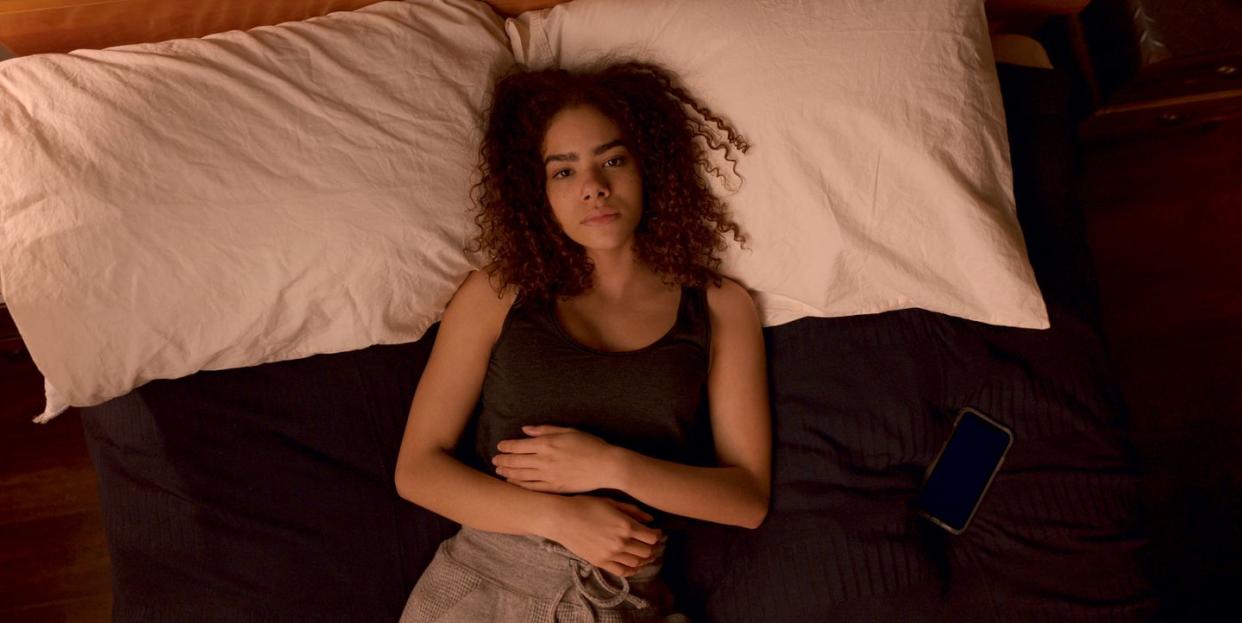
Ginny and Georgia season 2 spoilers follow.
Note: The following article contains discussion of themes including self-harm.
When it comes to the mixed-raced experience on television as it pertains to those of Black and white descent, we've heard the following phrase before: "Too dark for the white kids, not Black enough for the Black kids."
Usually it stops right there: the struggle acknowledged, before the biracial character's difficulties and trauma surrounding race get absorbed into the Black experience.
It's true they are acutely similar when it comes to racial prejudice and discrimination, however there are some experiences that cannot be folded into the Black community's. Experiences unique to being biracial deserve exploration of their own.
Ginny and Georgia has always been good at giving a platform to the biracial experience in a way that extends past tokenism.
Ginny's heated argument with her now ex-boyfriend Hunter (Mason Temple) in season one is a prime example of this.
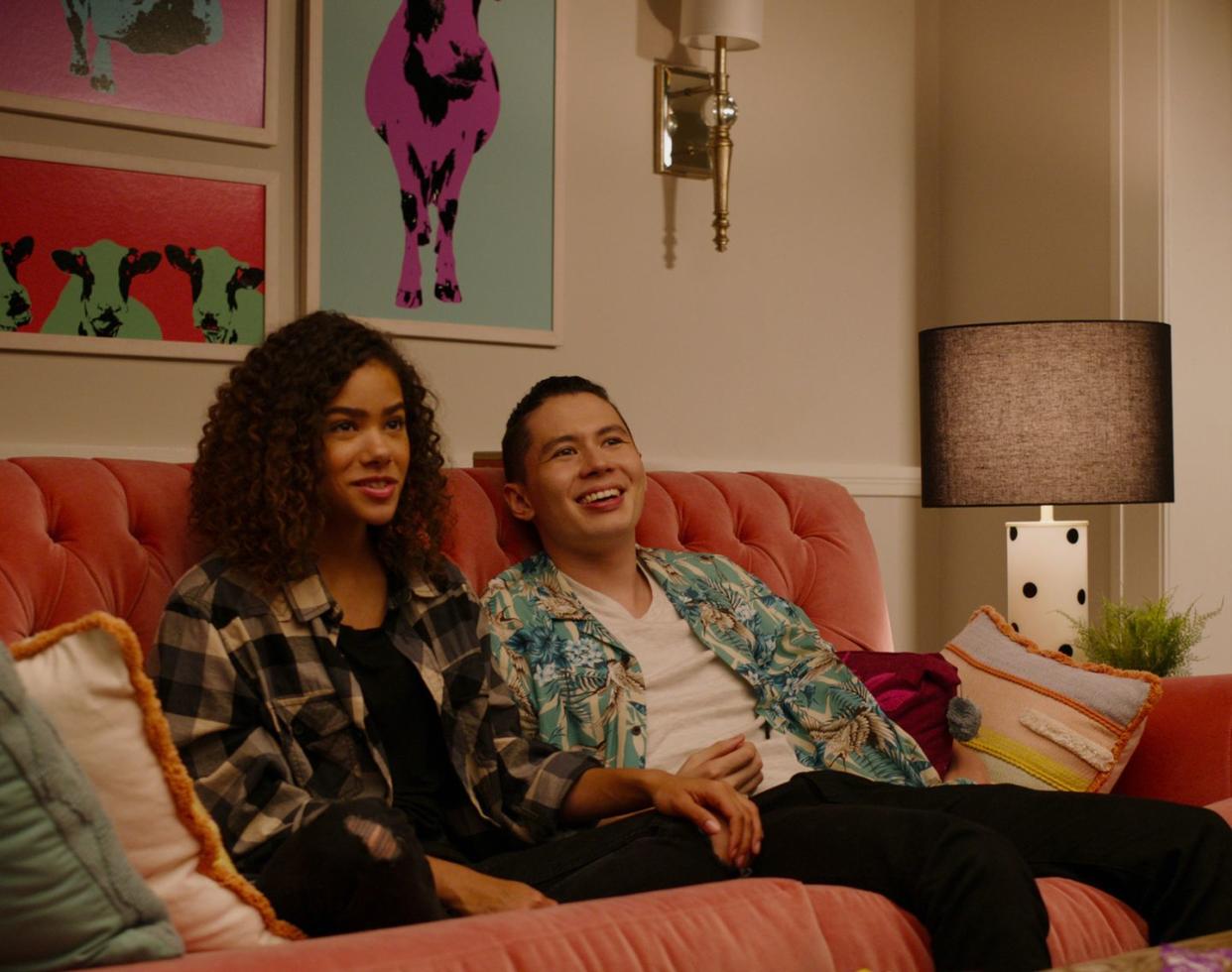
The half-white, half-Taiwanese Hunter goes toe-to-toe with Ginny (Antonia Gentry) in what he dubs "oppression Olympics."
"Sorry I'm not Chinese enough for you" he retorts when Ginny spits that he's barely even Asian, before closing with "but I've never seen you pound back jerk chicken…So really how Black are you then?"
Whoa.
There were a few more slurs tossed between the two in this tense exchange, but it only touches the surface of what it means to struggle with one's biracial identity.
In the past the show has been criticised for not correctly dealing with Ginny's biracial identity by having her call out the micro-aggression and racist comments made by her friends. It could be argued, however, that this is understandable.
Ginny had never had friends before and had never been in a place long enough to feel like she fit in. It’s understandable then that she may not have wanted to risk it all by confronting discrimination.
By season two, having lost and regained her friends, we see a shift in her thought process. She feels bolder when it comes to confronting Max’s inability to support her when she is targeted by their racist English teacher Gitten (Jonathan Potts).
Ginny and Georgia builds on this conversation further in season two. It not only factors in what it's like to be biracial among your peers or among those doing the oppressing, but also what it's like for a Black person to be raised by a white parent, someone who has to learn to become well versed in your Black culture and the Black experience but who is perceptive enough to realise that there are other uphill struggles you may face.
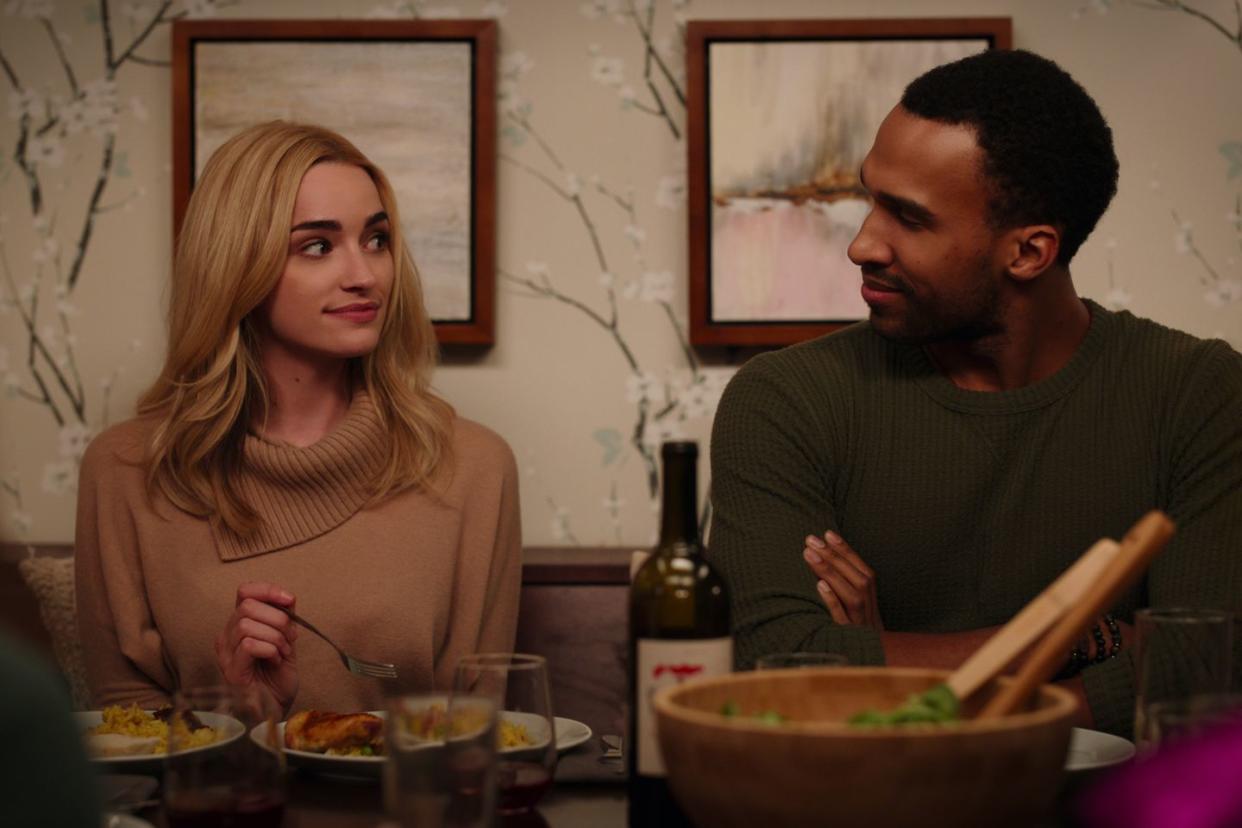
Such as recognising that while colourism may exist in your favour, awarding you 'light privilege', you may also in turn experience resentment among your Black peers.
Georgia (Brianne Howey) may have learnt to slick back and slay Ginny's 3B afro hair but it is revealed, in this season, that she may not have put much stock in the rest.
Things come to light during Joe's Open Mic night when Georgia walks in on Ginny mid-way through poetry reading.
Georgia had intended to surprise Ginny by showing up, but it is she who receives a shock when she learns just what her daughter really thinks of her.
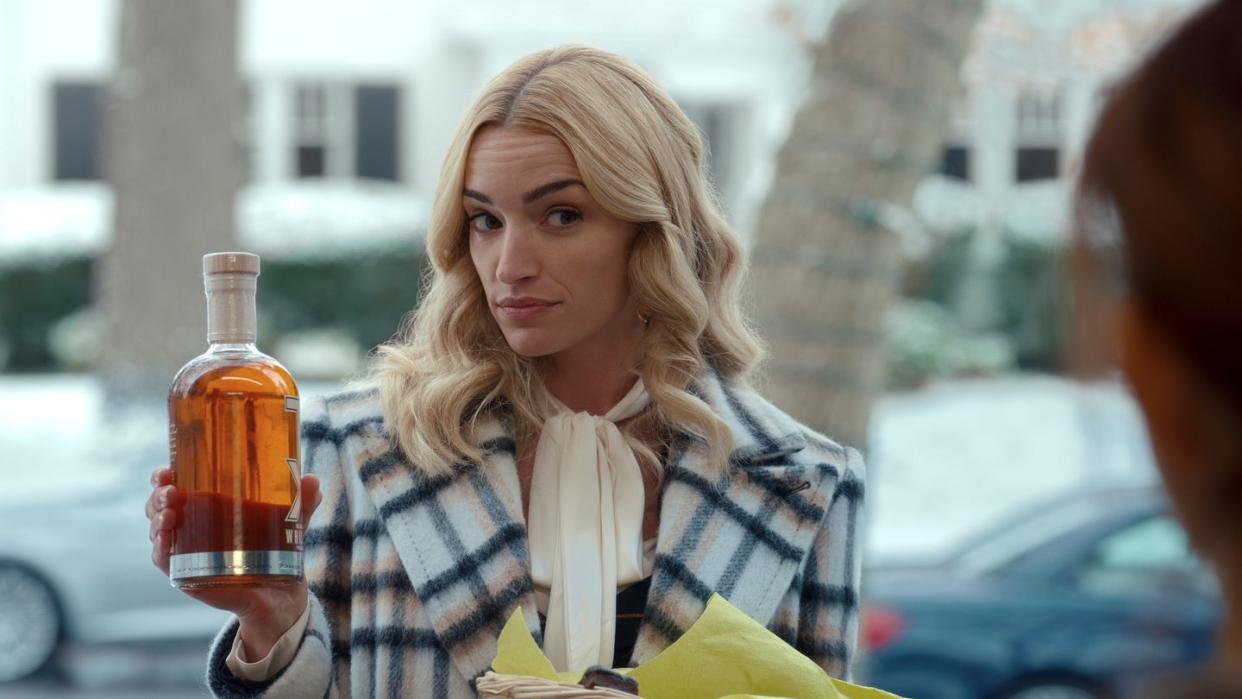
Ginny blames Georgia for the guilt she feels over Kenny's death and inadvertently calls her a monster, while also weaving in the discontent she feels at her mother's lack of understanding when it comes to her race.
"They say mother knows best, but what if there are things mother doesn't know, like if she can braid your hair but still stans Scarlett O'Hara…
"Me and you against the world? But the world is out to get me in ways you can never know or feel, so how can you know it's real?"
Georgia, being Georgia, focuses on the juggernaut of words that hurt her the most: "I become the monster that I was born from." For days after, she reels over her daughter's perception of her being evil, not taking stock of the poem in its entirety.
It doesn't help that Ginny was raised mostly in the absence of Black family and so wasn't able to consistently lean on them for support.
It is not until Georgia discovers Ginny's self harming and hijacks her therapy session that she really gets an insight into this part of Ginny's life.
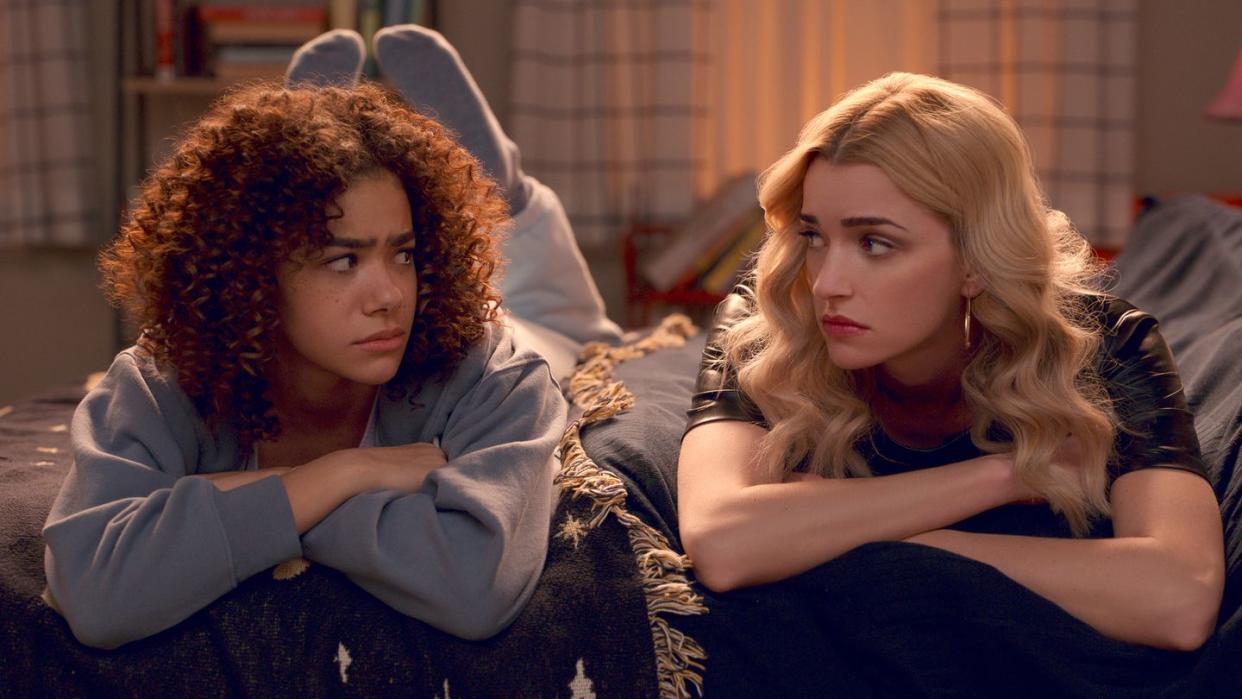
"What don't I understand?" Georgia dumbfoundedly asks Ginny – and while one may be tempted to scream 'EVERYTHING,' Ginny settles for:
"That I'm Black, for one."
Georgia's response – "So because I'm white I can never understand my daughter?" – is flippantly ignorant but this doesn't deter Ginny from finally speaking her truth.
"Kind of, yeah," she admits, picking up on the fact that for Halloween Georgia dressed as Scarlett O'Hara (a white character from the problematic Gone with the Wind, which has been slammed for its whitewashing of the horrors of slavery).
Georgia's determination to play it down as 'just a costume' doesn't go down well with Ginny, who defends her right to be insulted.
Finally doctor Lily (Zarrin Darnell-Martin) steps in, asking Georgia: "As a white mother do you think there may be things that are hard for you to understand about her lived experience?"
YES, a thousand times yes. Like having a mother who'd dress up like Scarlett O'Hara without even considering the impact is one aspect of her lived experience that she will never fully understand.
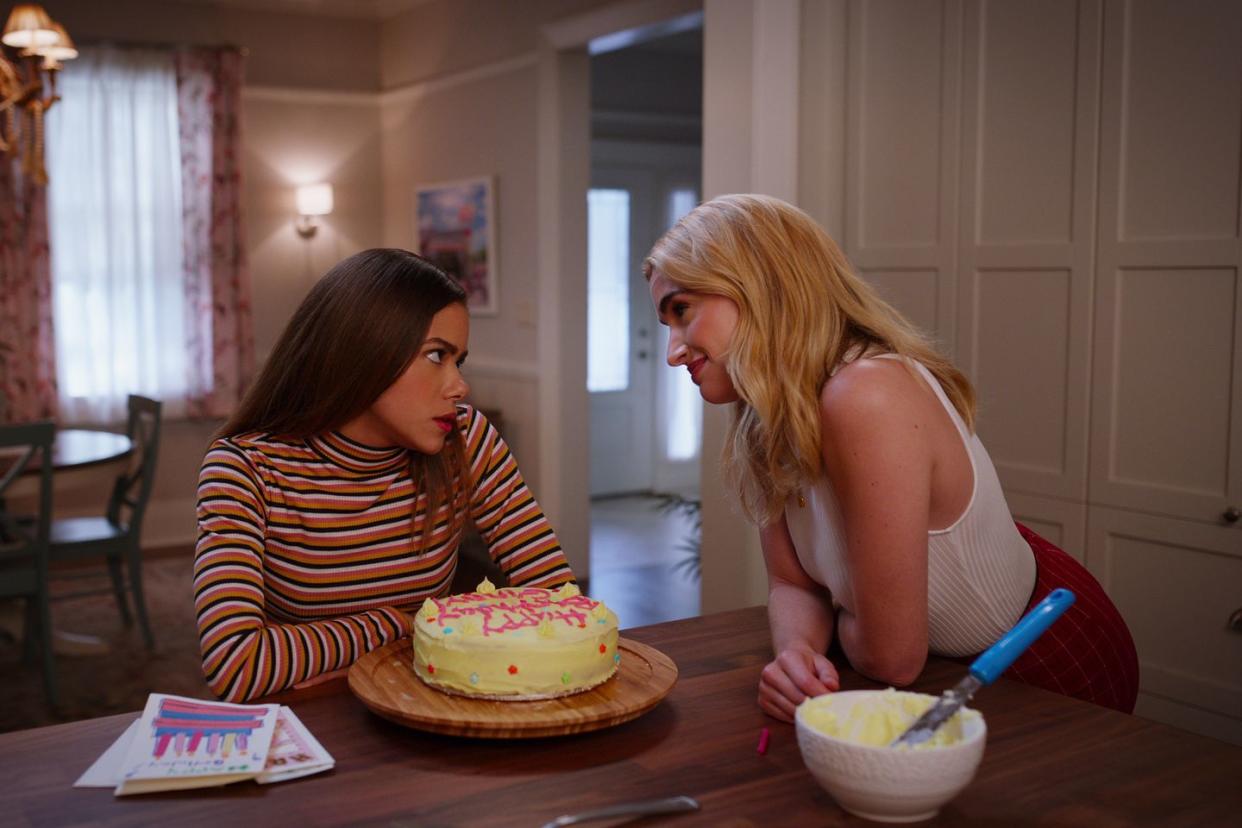
This is unfortunately true of the real world, which makes shows like Ginny and Georgia and the way they discuss these issues extremely important. It goes a long way to making a struggling person feel not only seen and heard but understood: to know that the things they feel are commonplace and that they have a right to their feelings even if that isn't reflected in their own reality.
Ginny and Georgia may be big on drama, but it is equally great at tackling difficult issues in a relatable way and giving a wider voice to the biracial experience.
Eventually Georgia begins to understand, thus paving the way for better communication and difficult conversations to be had between the two. Hopefully the impact of this storyline will bring a deeper understanding societally too.
Ginny and Georgia seasons 1 and 2 are available to watch on Netflix.
If you've been affected by the issues raised in this story, organisations who can offer support include Samaritans on 116 123 (www.samaritans.org) or Mind on 0300 123 3393 (www.mind.org.uk). Readers in the US are encouraged to visit mentalhealth.gov.
You Might Also Like
